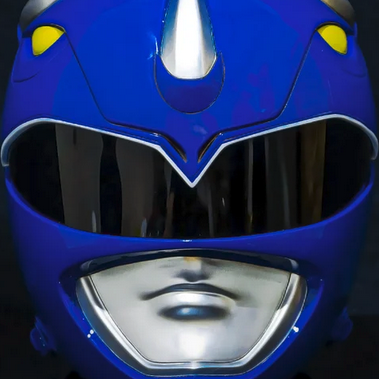odds of it happening eventually, go up the longer you live.
Despite this DNA replication being highly controlled and very accurate, the sheer number of times it is performed in the lifespan of a person (estimated to be 10,000 trillion times!) means the introduction of a significant number of errors into the DNA of some of our cells from this fundamental process is inevitable. source
Other way round: they are immortal because they don’t have transcription and replication errors.
Yeah, isn’t aging straight up caused by degradation during replication, like oxidation or something? I feel like being immortal would necessarily imply we fixed that shit
Yes. Your telomeres start to fray at the ends as you get older due to imperfect cell replications.
If we could solve that we’d be effectively immortal from death due to age related issues.
Arteries clogging up suggests that your time would still be limited for many
There are ways to prevent heart related diseases caused by comorbidities. A healthy diet would still be required. Obesity increases your morbidity rate regardless of whether or not you’re getting gray hair because your telomeres are fraying.
But, correct, if you had a genetic predisposition to a comorbidity, then you may not make it to 199, or whatever age people start dying at when some bad genetics finally catches up to them in the form of cancer (usually).
Just scrub them out with a pipe cleaner from time to time you’ll be fine
Telomere also don’t matter when replication enzymes add a random adenosine into a gene that controls genetic proofreading.
what even is aging? How do you measure it? Is it really just changes to your DNA? Is that really all of it? I don’t think so.
I think the DNA largely doesn’t mutate through your life. This is evident when you consider that probably a billion generations have passed since the beginning of life, with even more cell divisions, and you’re probably not a cripple because of it, so replication is not inherently doomed to lead to degradation over time.
Instead, it’s probably a mixture of factors. Some cells degrade because of DNA replication errors, some telomeres shorten, but also some kind of chemical clock ticks in our body and that in turn acts as a hormone on cells, making them act like they do in older individuals, on top of that old dysfunctional cells die but aren’t properly eaten up and removed, so they linger around and kinda take up space, then there’s misfolded proteins accumulating and clogging up the system, but it’s a lot of factors, not just a single one.
I guess tackling aging means tackling all of these things, one after another.
Another point of view would be error replication leading to mutation since they cannot die. So a million years in the future how much different would they be from their original species.
Maybe, but immortality also tends to come with things like extraordinary capabilities for self repair and by extension disease resistance, so maybe they get some sort of error correcting code in their DNA replication to go with it.
Human (ECC, lifetime warranty)
7E1 in a 8N1 world
I think I’d rather go with a large reed Solomon redundancy block.
Hurray I get that reference
Whale cancer resistance
Iirc elephants too. Megafauna is either very good fighting cancers, living with them (no metastization) or completely immune to it. That’s called Peto’s paradox, though recently, there was a study that claimed cancer rates are higher than we thought: https://www.ucl.ac.uk/news/2025/feb/bigger-animals-get-more-cancer-defying-decades-old-belief
I wonder if it just takes longer to become a problem? I would expect (and someone correct me if I’m wrong) that a tumor likely grows at roughly the same rate regardless of body size. A 3cm diameter tumor likely just isn’t as big of a deal when you mass 100,000kg.
aren’t bats like immune to a ton of diseases. which is what makes them dangerous as they are carriers.
Imagine this: you’re immortal, not just in the sense of “not aging,” but in the sense that you cannot die. No matter what happens, disease, trauma, fire, bullets, you persist.
Now introduce cancer into the equation. You don’t get a merciful end. You don’t get release. The cells in your body still mutate, still misfire, still turn against you. Tumors grow. They spread. They choke your organs, twist your bones, invade your brain.
In a mortal body, this means death, an end to the suffering. In your body? It means endless malfunction. Organs clogged with growths but never failing enough to kill you. Skin splitting under lesions that never close. Your lungs filled with tumors, every breath a shallow gasp, but the suffocation never comes. Your brain riddled with metastases until you’re half-aware, locked inside a prison of decaying flesh that never stops decaying.
And it doesn’t stop there. Given infinite time, you don’t get one cancer. You get all of them. Over centuries, every tissue eventually betrays you. Your body becomes a battlefield of competing malignancies, tumors devouring tumors, a grotesque ecosystem of your own flesh.
You live forever, yes. But you might pray for death long before eternity runs out.
this solution for immortality breaks thermodynamics. given that state, the body can no longer process nutrients to maintain self replication, you can starve cancer cells. either you’re saved by malnourishment or you die from it.
You’d live so long, your cancer would get cancer.
this is why im on lemmy. 👏👏👏
Supernatural had a guy who was immortal but kept aging/developing disease. He tried to take Sam’s eyes to replace his own
AKA the Ted Faro Scenario

Or you turn into cancerman from that X-files episode
Wrong way around.
They’re immortals because they’ve left their cancer riddled bodies behind to become made of living metal.
Or I’ve been reading too much 40K.
I dunno, I guess we’d have to ask that crayfish that cloned itself a few million times and will likely never die.
All immortals eventually become Deadpool.
Maybe immortals are just lobsters without a shell ¯\_(ツ)_/¯
I highly doubt immortals maintain the same body parts due to this. Kinda like a car. Parts have to eventually be replaced.



















